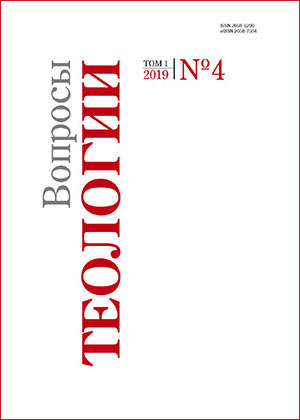The concept of conscience by Philo of Alexandria and the Apostle Paul: on the example of theological-exegetical analysis 1 Cor. 8:7–13 and other Epistles
DOI:
https://doi.org/10.21638/spbu28.2019.401Abstract
This article focuses on the exegetic analysis of terms of the lexical group of σύνοιδα / συνειδός /συνείδησις in the heritage of Philo of Alexandria and of the term συνείδησις in the Epistles of St. Paul the apostle. Within the context of theological comprehension of the concept of ‘conscience,’ Philo’s συνείδησις is rarely used in his texts and means the consciousness of the sin committed which is associated with personal pain, but he employs mainly terms συνειδός and ἔλεγχος / ἐλέγχω in his works, whereas the apostle’s Epistles are characterized by usage of the term συνείδησις. Unlike Philon, who speaks of conscience as a perfect God-given phenomenon, St. Paul the apostle considers conscience in the anthropological scope as a natural moral law present in the consciousness of every person regardless of his creed, denouncing or justifying his acts. The Apostle also describes the cases of a week conscience resulting from the lack of self-knowledge relative to others or sinfulness of a person. Hence, it is not correct to speak about any direct influence of these two authors on each other in the use of the concept of conscience. Keywords: New Testament, anthropology, apostle Paul, conscience, instance, selfconsciousness, responsibility, «strongs», «weaks», συνειδός, συνείδησις.
Keywords:
New Testament, anthropology, apostle Paul, conscience, instance, selfconsciousness, responsibility, «strongs», «weaks», συνειδός, συνείδησις
Downloads
References
References
Downloads
Published
Issue
Section
License
Articles of "Issues of Theology" are open access distributed under the terms of the License Agreement with Saint Petersburg State University, which permits to the authors unrestricted distribution and self-archiving free of charge.




